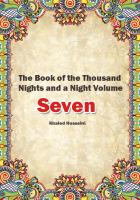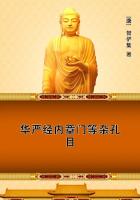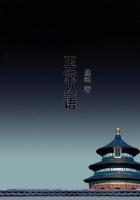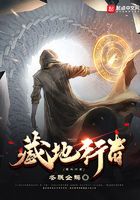"That is the reason." Therewith native philosopy is satisfied, and does not examine in Mr. Darwin's laborious manner the slow evolution of the colour of the pelican's plumage. The mythological stories about animals are rather difficult to treat, because they are so much mixed up with the topic of totemism. Here we only examine myths which account by means of a legend for certain peculiarities in the habits, cries, or colours and shapes of animals. The Ojibbeways told Kohl they had a story for every creature, accounting for its ways and appearance. Among the Greeks, as among Australians and Bushmen, we find that nearly every notable bird or beast had its tradition. The nightingale and the swallow have a story of the most savage description, a story reported by Apollodorus, though Homer refers to another, and, as usual, to a gentler and more refined form of the myth. Here is the version of Apollodorus. "Pandion" (an early king of Athens)"married Zeuxippe, his mother's sister, by whom he had two daughters, Procne and Philomela, and two sons, Erechtheus and Butes. A war broke out with Labdas about some debatable land, and Erechtheus invited the alliance of Tereus of Thrace, the son of Ares. Having brought the war, with the aid of Tereus, to a happy end, he gave him his daughter Procne to wife. By Procne, Tereus had a son, Itys, and thereafter fell in love with Philomela, whom he seduced, pretending that Procne was dead, whereas he had really concealed her somewhere in his lands. Thereon he married Philomela, and cut out her tongue. But she wove into a robe characters that told the whole story, and by means of these acquainted Procne with her sufferings. Thereon Procne found her sister, and slew Itys, her own son, whose body she cooked, and served up to Tereus in a banquet. Thereafter Procne and her sister fled together, and Tereus seized an axe and followed after them.
They were overtaken at Daulia in Phocis, and prayed to the gods that they might be turned into birds. So Procne became the nightingale, and Philomela the swallow, while Tereus was changed into a hoopoe." Pausanias has a different legend; Procne and Philomela died of excessive grief.
Odyssey, xix. 523.
A Red Indian nightingale-myth is alluded to by J. G. Muller, Amerik. Urrel., p. 175. Some one was turned into a nightingale by the sun, and still wails for a lost lover.
These ancient men and women metamorphosed into birds were HONOUREDAS ANCESTORS by the Athenians. Thus the unceasing musical wail of the nightingale and the shrill cry of the swallow were explained by a Greek story. The birds were lamenting their old human sorrow, as the honey-bird in Africa still repeats the name of her lost son.
Pausanias, i. v. Pausanias thinks such things no longer occur.
Why does the red-robin live near the dwellings of men, a bold and friendly bird? The Chippeway Indians say he was once a young brave whose father set him a task too cruel for his strength, and made him starve too long when he reached man's estate. He turned into a robin, and said to his father, "I shall always be the friend of man, and keep near their dwellings. I could not gratify your pride as a warrior, but I will cheer you by my songs." The converse of this legend is the Greek myth of the hawk. Why is the hawk so hated by birds? Hierax was a benevolent person who succoured a race hated by Poseidon. The god therefore changed him into a hawk, and made him as much detested by birds, and as fatal to them, as he had been beloved by and gentle to men. The Hervey Islanders explain the peculiarities of several fishes by the share they took in the adventures of Ina, who stamped, for example, on the sole, and so flattened him for ever. In Greece the dolphins were, according to the Homeric hymn to Dionysus, metamorphosed pirates who had insulted the god. But because the dolphin found the hidden sea-goddess whom Poseidon loved, the dolphin, too, was raised by the grateful sea-god to the stars.
The vulture and the heron, according to Boeo (said to have been a priestess in Delphi and the author of a Greek treatise on the traditions about birds), were once a man named Aigupios (vulture)and his mother, Boulis. They sinned inadvertently, like Oedipus and Jocasta; wherefore Boulis, becoming aware of the guilt, was about to put out the eyes of her son and slay herself. Then they were changed, Boulis into the heron, "which tears out and feeds on the eyes of snakes, birds and fishes, and Aigupios into the vulture which bears his name". This story, of which the more repulsive details are suppressed, is much less pleasing and more savage than the Hervey Islanders' myth of the origin of pigs. Maaru was an old blind man who lived with his son Kationgia. There came a year of famine, and Kationgia had great difficulty in finding food for himself and his father. He gave the blind old man puddings of banana roots and fishes, while he lived himself on sea-slugs and shellfish, like the people of Terra del Fuego. But blind old Maaru suspected his son of giving him the worst share and keeping what was best for himself. At last he discovered that Kationgia was really being starved; he felt his body, and found that he was a mere living skeleton. The two wept together, and the father made a feast of some cocoa-nuts and bread-fruit, which he had reserved against the last extremity. When all was finished, he said he had eaten his last meal and was about to die. He ordered his son to cover him with leaves and grass, and return to the spot in four days. If worms were crawling about, he was to throw leaves and grass over them and come back four days later. Kationgia did as he was instructed, and, on his second visit to the grave, found the whole mass of leaves in commotion. A brood of pigs, black, white and speckled, had sprung up from the soil; famine was a thing of the past, and Kationgia became a great chief in the island.
Schoolcraft, ii. 229, 230.
Boeo, quoted by Antoninus Liberalis.
Gill, South Sea Myths, pp. 88-95.

